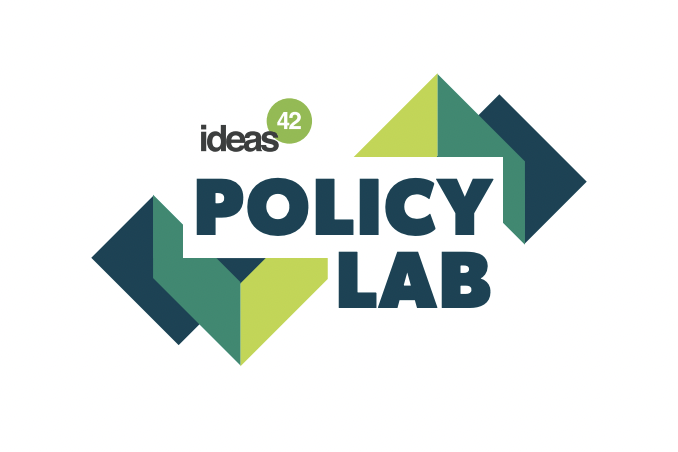Deep Dives into Applying Behavioral Science to Policymaking in the United States
Upcoming Sessions
More information on our upcoming event schedule will be available in late 2023!
Past Sessions
December 1, 2022
Basic Income Programs: Successes, Challenges, and Policy Solutions
w/ Nicole Russo, Principal Behavioral Designer, ideas42
Sarah Stripp, Managing Director, Springboard to Opportunities
Lesa Gilbert, Director, Center for Economic Support, City of Alexandria Department of Community and Human Services
& Lori Pfingst, Senior Director, Washington State Department of Social and Health Services
Guaranteed basic income programs are a behaviorally informed and effective way to support families. In more than 50 cities across the United States, households with low incomes receive a monthly, unconditional cash payment to help make ends meet. Evidence confirms the positive impacts of guaranteed income on economic and overall well being; yet, policy questions remain about how to best scale and operate these programs moving forward.
Our panel examines the impact of city-level basic income programs and the potential benefits of state-wide basic income program implementation. Watch to learn more about the policy challenges associated with basic income programs and behaviorally informed tips for advocates and policymakers interested in improving and expanding these programs.
September 29, 2022
Combating Voter Misinformation: Tools for Election Officials and Advocates
w/ Kelli Garcia, Director, ideas42 Policy Lab,
Omar Parbhoo, Managing Director of Civic Engagement, ideas42,
Raelyn Roberson, Field Coordinator Stopping Cyber Suppression, Common Cause
Rampant mis- and dis-information about election processes threaten both voter turnout and faith in our democratic institutions. Voters are being bombarded all around: from misinformation about the integrity of our voting systems, to outright lies about where and when to vote. Watch to learn about evidence-based and behaviorally-informed strategies for effective messaging to inoculate voters against misinformation. Election officials and civic organizations can use these tools to combat misinformation, helping to ensure voters get to the polls on election day and to restore confidence in our democracy.
July 26, 2022
Breaking the Cycle of Chronic Scarcity by Removing Asset Limits for Public Benefits Programs
w/ Kelli Garcia, Director, ideas42 Policy Lab
& Signe-Mary McKernan, Vice President of the Center on Labor, Human Services, and Population, and codirector of the Wealth and Financial Well-Being initiative at the Urban Institute
Many public assistance programs currently place limits on how many resources people can have in order to participate. For example, a family in Georgia has to have less than $1000 in savings in order to qualify for Temporary Assistance for Needy Families (TANF). This is less than the average rent for an apartment in Atlanta. Resource limits like these force people who participate in programs that help them through tough times to live in a constant state of economic insecurity or risk losing benefits they need.
Learn about how eliminating resource limits in public assistance programs is a behaviorally sound way to not only help families in times of crisis but also help close wealth gaps, combat harmful narratives, and increase trust in (and engagement with) government and financial institutions.
June 28, 2022
Reducing Administrative Burden
w/ Kelli Garcia, Director, ideas42 Policy Lab
Erika Hanson, Staff Attorney, Health Law Unit at The Legal Aid Society
Pamela Herd, Professor of Public Policy, Georgetown University
& Darren Liddell, Entrepreneur, ideas42 Venture Studio
The social safety net is designed to fail: let's rebuild it. Historically, it has been designed to make it hard for people to access the benefits they need through a series of hassles, paperwork, appointments, and bureaucracy known as administrative burden.
Our panel of experts discuss the policy mechanisms and recommendations that would remove administrative burden through clear case studies such as the Child Tax Credit in the American Rescue Plan and the loosening of many restrictions in other public benefits programs due to COVID-19 in the United States.
May 24, 2022
Meet the ideas42 Policy Lab
w/ Kelli Garcia, Director, ideas42 Policy Lab
& Jeremy Barofsky, Vice President of Applied Research and Evaluation, ideas42
Many policies are well intended, but more often than not they’re not designed to account for how humans actually behave, and they’re rarely designed to help those who need them the most: those with the fewest financial resources. Furthermore, many policies have advantaged certain groups over others, and specifically disadvantaged Black Americans. Behavioral science, fortunately, has a great deal to offer in creating and designing public policy and therefore improving the contexts in which people operate.
Join ideas42's Policy Lab for an overview of how we have used insights from behavioral science to make concrete improvements to laws, rules, and regulations at the Federal, State, and local level to improve the lives of people living in poverty.



